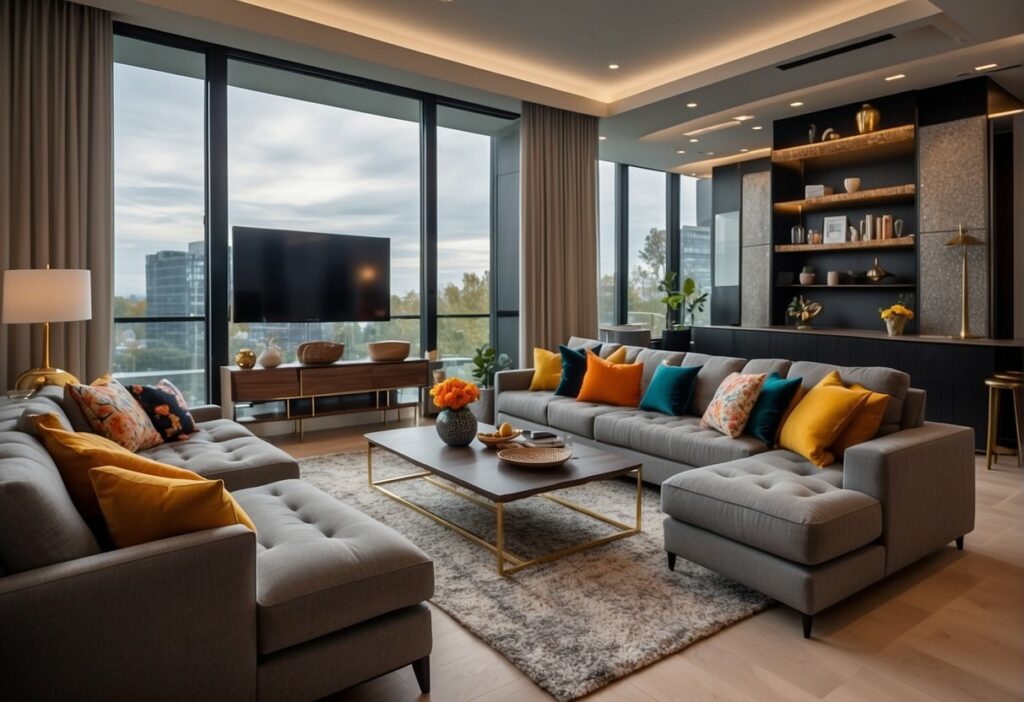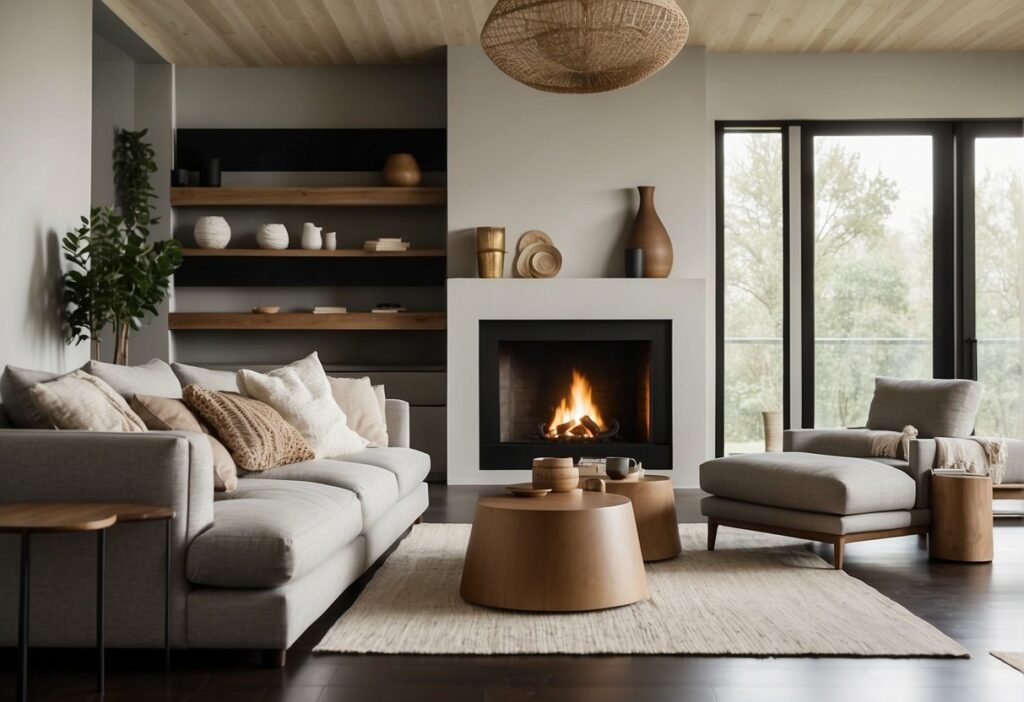Interior Design Employment: Opportunities and Trends in the UK
If you are passionate about interior design and have an eye for detail, then a career in interior design might be perfect for you. Interior design is a multi-disciplinary profession that involves creating functional and aesthetically pleasing spaces. It requires a combination of creativity, technical skills, and knowledge of materials and products.

Career Pathways in Interior Design can vary depending on your interests and qualifications. You can work in a variety of settings such as residential, commercial, or hospitality design. You can also specialize in areas such as lighting design, sustainable design, or historic preservation. Some interior designers work as consultants, while others work for design firms or in-house design departments of large corporations.
Job Market Dynamics in Interior Design are constantly changing. While the demand for interior designers is expected to increase over the next few years, it is also a highly competitive field. To succeed in this industry, you need to be adaptable, creative, and have strong communication skills. Building a strong portfolio and networking with other professionals can also help you stand out in this field.
Key Takeaways
- Interior design is a multi-disciplinary profession that involves creating functional and aesthetically pleasing spaces.
- Career Pathways in Interior Design can vary depending on your interests and qualifications.
- Job Market Dynamics in Interior Design are constantly changing, and to succeed in this industry, you need to be adaptable, creative, and have strong communication skills.
Career Pathways in Interior Design

If you are considering a career in interior design, there are numerous career pathways to choose from. Below are some of the most common career pathways in interior design:
Educational Requirements
To become an interior designer, you will need to have some formal education in the field. Most employers prefer candidates with a degree, diploma, or certificate in interior design or a related field. A bachelor’s degree in interior design is particularly beneficial for career progression and can help you stand out in a competitive job market.
Professional Development
Professional development is essential in the interior design industry. As a designer, you will need to keep up with the latest trends, styles, and technologies. Training is provided in various software programs such as AutoCAD, Photoshop, SketchUp, 3D Studio Max, and V-Ray. It is also important to attend conferences, workshops, and seminars to stay current in the field.
Specialisations and Skills
Interior design is a versatile field with many specialisations. Specialisations include residential interior design, commercial interior design, corporate interior design, healthcare interior design, kitchen and bath interior design, and lighting design. You can choose to specialise in one or more areas depending on your interests and skills.
To succeed as an interior designer, you will need to possess a variety of skills. These include creativity, problem-solving, communication, time management, and attention to detail. You will also need to be proficient in software programs such as AutoCAD, Photoshop, SketchUp, 3D Studio Max, and V-Ray.
In summary, a career in interior design offers a wide range of career advancement opportunities. With the right educational qualifications, professional development, and specialisations and skills, you can be on your way to a fulfilling full-time job in interior design. Make sure to update your resume and conduct a thorough job search to find the best fit for your career goals.
Job Market Dynamics

If you are interested in pursuing a career in interior design, it is important to understand the current job market dynamics. This section will discuss the different aspects of finding employment in the interior design industry.
Finding Employment
There are various ways to find employment in the interior design industry. You can start your job search by browsing online job portals such as JobStreet and Glassdoor to look for full-time job vacancies and immediate vacancies. Renowned boutique brand customers are always looking for talented interior designers to join their team.
Work Environment and Benefits
Interior design firms offer a flexible work-from-home arrangement, which allows you to work from the comfort of your own home. This is especially beneficial for those who need to balance work and personal commitments. Interior design firms also offer attractive compensation and benefits, including a competitive remuneration package, commission, and bonuses.
Compensation Structure
Interior designers are usually paid on a commission basis with performance bonuses. The commission structure varies depending on the type of project, the size of the project, and the level of involvement of the interior designer. The performance bonus is usually awarded based on the quality of work and the completion of the project within the stipulated timeline.
In terms of compensation, the interior design industry offers a competitive remuneration package. The package includes a basic salary, commission, and bonuses. The commission is usually a percentage of the project cost, and the bonus is awarded based on the performance of the interior designer.
The working culture in interior design firms is team-oriented, and there is a good work-life balance. The interior design industry also offers excellent working culture and benefits, which attract many talented individuals to the industry.
Frequently Asked Questions

How can one break into the interior design industry without prior experience?
Breaking into the interior design industry without prior experience can be challenging, but it is not impossible. One way to get started is by taking relevant courses or pursuing a degree in interior design. You can also gain experience by volunteering your services or interning with established interior designers. Networking with professionals in the industry can also help you gain exposure and build relationships that can lead to job opportunities.
What qualifications are needed to secure employment in interior design?
To secure employment in interior design, you typically need a qualification in interior design or a related field. Some employers may also require a National Council for Interior Design Qualification (NCIDQ) certification. Additionally, having a strong portfolio showcasing your design skills and experience can be helpful in securing employment.
Are there promising career prospects in interior design?
Yes, there are promising career prospects in interior design. With the growing demand for aesthetically pleasing and functional spaces, the need for interior designers is on the rise. Interior designers can work in a variety of settings, including residential, commercial, and hospitality. Additionally, as more companies focus on sustainability and eco-friendly design, there is a growing need for interior designers with expertise in sustainable design.
What type of interior design role commands the highest salary?
The type of interior design role that commands the highest salary varies depending on factors such as location, experience, and industry. However, typically, roles in commercial interior design, such as designing for hotels, restaurants, and retail spaces, tend to pay higher salaries than residential interior design roles.
Is there a significant demand for interior designers today?
Yes, there is a significant demand for interior designers today. With the rise of the gig economy and remote work, people are spending more time at home and are investing in their living spaces. Additionally, businesses are recognising the importance of creating aesthetically pleasing and functional workspaces to improve employee productivity and wellbeing.
Can foreigners easily find interior design opportunities in Singapore?
Foreigners can find interior design opportunities in Singapore, but it can be challenging due to the country’s strict employment laws. To work in Singapore, foreigners must have a valid work permit or employment pass. However, if you have the necessary qualifications and experience, you may be able to secure employment with a Singapore-based company. Networking and building relationships with professionals in the industry can also help you find opportunities.



